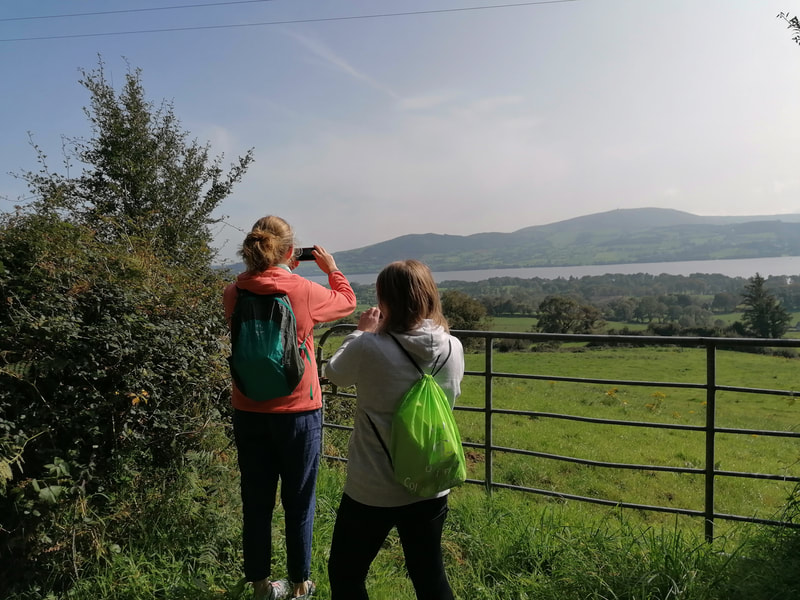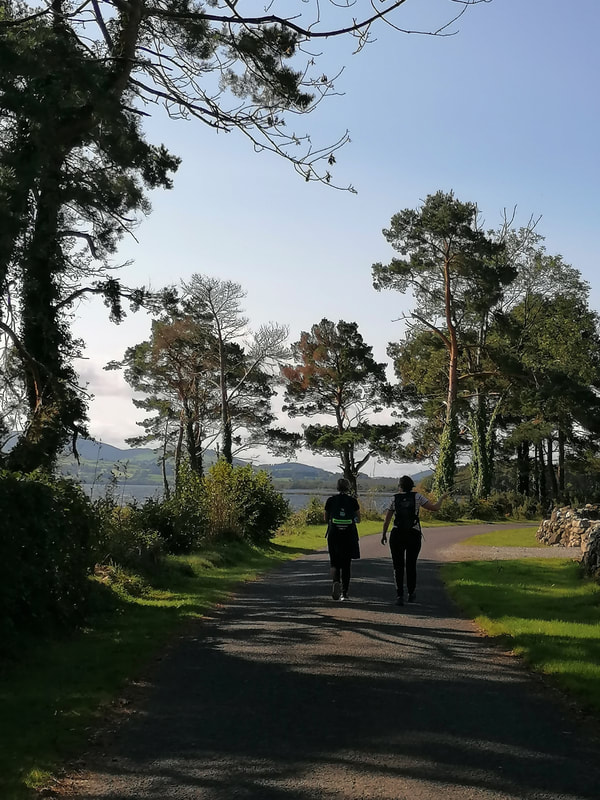Some helpful info for your trip
Because the island is hugged all year round by the warm influence of the Gulf Stream, Ireland is much warmer than other countries that share its latitude. The Gulf Stream also ensures that the Irish coastline remains ice-free throughout winter. Extreme winters are rare, and you're more likely to encounter a warm glow than a frosty reception, with average winter temperatures of between 5°C and 8°C. Summer temperatures are generally between 15°C to 20°C. One thing that is more than probable is rain. That’s what makes the grass so green, so don’t forget to pack your rain gear and a woolly jumper. The best way to be prepared for the Irish weather is to bring a lot of layers, waterproof shoes and a raincoat.
The Republic of Ireland is part of the EU and the currency is in Euros. International bank cards will work perfectly in ATMs and most places will have chip and pin. All major credit cards are accepted but in the countryside it’s better to carry some cash. Travelers from outside the EU are entitled to tax-free shopping.
Driving is on the left hand side of the road and country roads are narrow and winding. Some locals drive along them more quickly than you might expect. Look right when crossing the road.
Check your baggage restrictions with your airline. There can be large fees for luggage that isn’t allowed as cabin baggage. From the US and within the EU, you may visit the Republic of Ireland without a visa for up to 90 days. You will need to show a valid passport or national identity card upon arrival and it must be at least valid for the duration of your stay. Validity for six months after your arrival date is recommended.
In restaurants it is normal to tip between 10% to 12% or more if you wish. Some restaurants add a service charge to the bill themselves, especially for larger groups. Most cafes and restaurants are open from 9am to 5pm with pub grub available all day up to 9pm or 10pm. There are also evening restaurants serving food until late.
English and Irish are the two official languages in the Republic of Ireland. The vast majority is English speaking but most signage will be in English and Irish especially in regions of the west. People in Ireland are very friendly when spoken to and love to talk.
If you have any other queries contact us at [email protected] and we will be happy to help.
Because the island is hugged all year round by the warm influence of the Gulf Stream, Ireland is much warmer than other countries that share its latitude. The Gulf Stream also ensures that the Irish coastline remains ice-free throughout winter. Extreme winters are rare, and you're more likely to encounter a warm glow than a frosty reception, with average winter temperatures of between 5°C and 8°C. Summer temperatures are generally between 15°C to 20°C. One thing that is more than probable is rain. That’s what makes the grass so green, so don’t forget to pack your rain gear and a woolly jumper. The best way to be prepared for the Irish weather is to bring a lot of layers, waterproof shoes and a raincoat.
The Republic of Ireland is part of the EU and the currency is in Euros. International bank cards will work perfectly in ATMs and most places will have chip and pin. All major credit cards are accepted but in the countryside it’s better to carry some cash. Travelers from outside the EU are entitled to tax-free shopping.
Driving is on the left hand side of the road and country roads are narrow and winding. Some locals drive along them more quickly than you might expect. Look right when crossing the road.
Check your baggage restrictions with your airline. There can be large fees for luggage that isn’t allowed as cabin baggage. From the US and within the EU, you may visit the Republic of Ireland without a visa for up to 90 days. You will need to show a valid passport or national identity card upon arrival and it must be at least valid for the duration of your stay. Validity for six months after your arrival date is recommended.
In restaurants it is normal to tip between 10% to 12% or more if you wish. Some restaurants add a service charge to the bill themselves, especially for larger groups. Most cafes and restaurants are open from 9am to 5pm with pub grub available all day up to 9pm or 10pm. There are also evening restaurants serving food until late.
English and Irish are the two official languages in the Republic of Ireland. The vast majority is English speaking but most signage will be in English and Irish especially in regions of the west. People in Ireland are very friendly when spoken to and love to talk.
If you have any other queries contact us at [email protected] and we will be happy to help.




